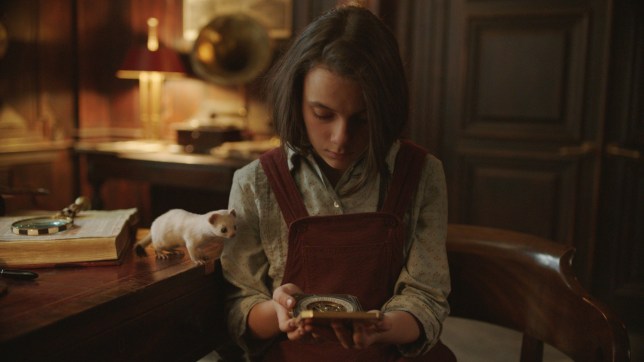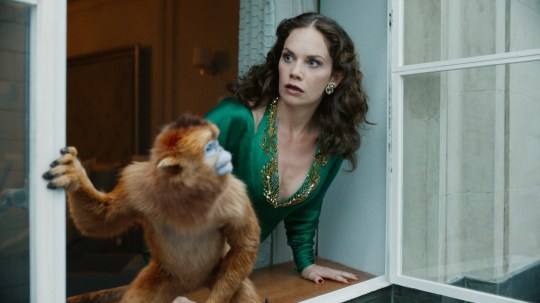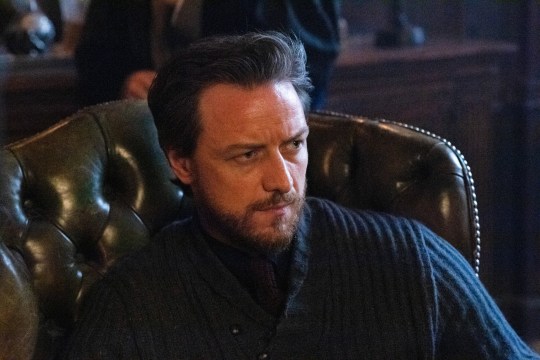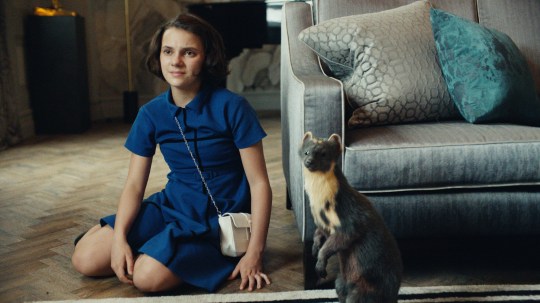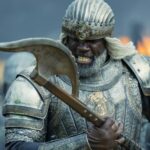Every TV show wants to be Game of Thrones now.
Not in the sense of let’s have six perfect seasons of television and then slowly drop in quality, leading to one of the most disappointing series finales of all time. No, what they want is the undeniable cultural, commercial and critical domination Thrones achieved and commanded at its peak.
His Dark Materials is one such show, and its parallels to HBO’s high-fantasy epic are perhaps too good to be true. Like George RR Martin’s opus, it’s based on a best-selling book series, one that tries to change and subvert stereotypical fantasy tropes in different ways.
For Thrones, it was the shape of the traditional fantasy hero (Ned Stark, who is quickly dispatched at the end of book and season one) and how the quest for absolute power corrupts, absolutely (hello Daenerys!). For His Dark Materials, it’s its approach to religious iconography, allegory and pretty blatant criticism of church power structures and teachings.
Each fantasy throne has to have its own distinguishing quality to make it stand out in what is now a very overcrowded and over saturated marketplace. Most shows have tried to engineer and copy Thrones’ perceived biggest strengths; its subversive killing of seemingly main characters without a second thought. His Dark Materials, though, is different. With the way it uses original author Phillip Pullman’s ideas about religion, it’s found something that no other fantasy TV series has in a post-GoT world: a point of view.
I won’t get into major spoiler territory for you, here, but the world of His Dark Materials, one eerily similar to our own, is ruled by an autocratic regime called the Magisterium, which is a clear reflection of our own Church, the Catholic Church in particular. In the novels, the Magisterium seeks knowledge of Dust, a mysterious substance that they want to destroy, thinking it will remove humanity’s sin.
Sin, the concept of sin and how it came to be and how it influences us, is a huge part of Pullman’s original three novels, which serve as a re-telling of John Milton’s epic poem Paradise Lost, which tracks the events of the Book of Genesis from Satan’s point of view.
This is children’s fantasy literature, so the allegories are there and they are very clear to see. It heightens the stakes of Lyra Belacqua’s adventure tenfold; she’s not just fighting for herself, or even her own world, she’s fighting both Heaven and Hell at the same time.
Religion has always been, and I suspect always will be, a contentious issue in terms of its representation on-screen. His Dark Materials was originally adapted for the big screen; The Golden Compass was made in 2008 vying to fill the soon-to-be-empty Harry Potter-shaped void in the viewer’s wallet. But the movie studio behind the film bungled the adaption, removing most of Pullman’s allegories and blatant criticism of both religion and the power religious organisations such as the Catholic Church wield. It resulted in a toothless adaptation that ignored the most important thing that Pullman’s work is trying to communicate to the reader.
Jack Thorne, the writer behind the new TV adaption, clearly re-thought this strategy when bringing the first of the trilogy, Northern Lights, to the small screen. The debut episode makes no qualms about establishing the fact that the ruling power in the world, the Magisterium, has religious authority. When Lord Asriel (James McAvoy) presents his research on Dust to the professors of Jordan College (namely, that it doesn’t affect children and seems to flow from a mysterious world in the sky) it’s called ‘heresy.’
The mysterious Mrs Coulter (Ruth Wilson) even brings up the biggest recurring theme in the source novels; sin itself, setting the stage for the TV adaption to take Pullman’s reigns and head off into some heady exploration into some pretty central religious concepts and figures. With, of course, some talking armoured bears and witches thrown in for good measure too.
Every new series has to find something to help it stand out, but the problem in following (and trying to emulate) Game of Thrones’ success, you end up re-treading a lot of the same ground. His Dark Materials feels different than that. As a fan of the original books, it feels genuinely brave to bring them onto TV and not sugarcoat their allegories.
Knowing what’s to come (and, trust me, there is a lot to come) I can’t wait to see the ways in which His Dark Materials continues to build on the themes and concepts its already introduced and started to explore.
There are seven more episodes to come of this first season, of course, and there’s already a second series on the way – so the show may let me down yet. It may lose its nerve on the way, or perhaps some of Pullman’s more heady religious-centric ideas and characters from the last two novels won’t translate well, either onto the screen or the established world of the show, which is and should be separate from the books themselves. But at least it has a voice, it has a standpoint.
That’s what Game of Thrones started with, and look where it ended up.
His Dark Materials airs Sundays from 8pm on BBC One. The first episode is available to stream now on iPlayer.
Got a showbiz story?
If you’ve got a story, video or pictures get in touch with the Metro.co.uk Entertainment team by emailing us celebtips@metro.co.uk, calling 020 3615 2145 or by visiting our Submit Stuff page – we’d love to hear from you.
MORE: His Dark Materials: 5 questions we have as Lyra heads off on an adventure in episode 2
MORE: James McAvoy was third in line for His Dark Materials role


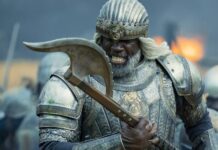

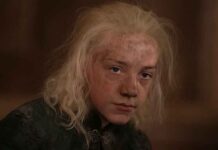















![[Book Review] The Blade Itself (The First Law Trilogy) by Joe Abercrombie](https://bendthekneegot.com/wp-content/uploads/2018/01/1516047103_maxresdefault-218x150.jpg)







